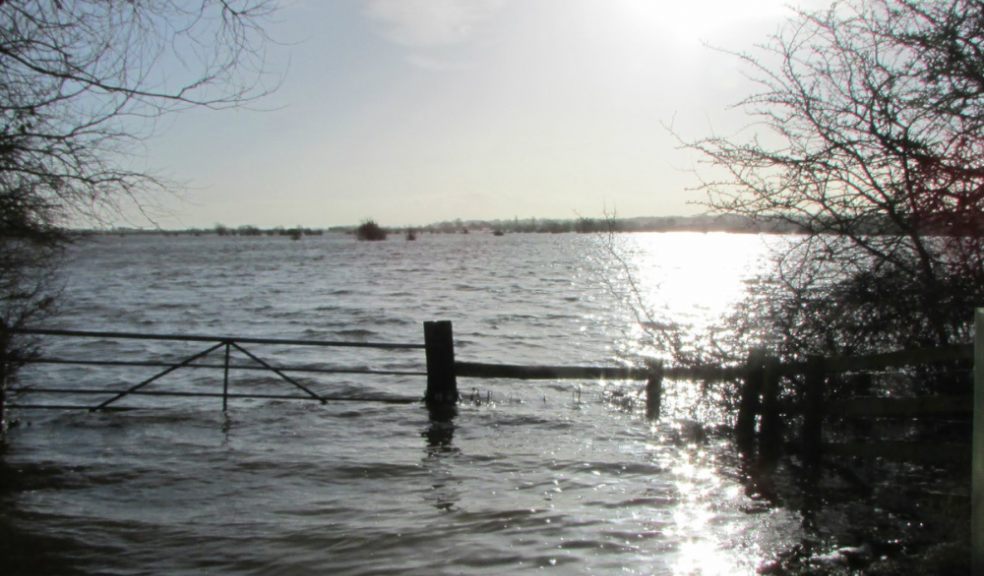
NFU: Flood plans sacrificed farmland
The Government must review its flooding and coastal defence policies and commit more money to reducing further risks to the British countryside, the NFU said today.
The call comes as part of the NFU’s new flooding manifesto which was launched at this morning at the second day of the union’s annual conference in Birmingham.
The flooding manifesto calls for the targeted protection of high quality farmland and a reduction of the impact of urban flood defences to rural areas arguing that farming land was being sacrificed as the lowest priority in managing the nation’s floods.
Launching the manifesto Deputy President Meurig Raymond said: “We’ve been here before, and here we are again. We simply must have a flood and coastal management approach that can cope with more extreme weather, something we are increasingly being exposed to – and a public spending budget which reflects this increased risk,
“It is unacceptable for farmland and rural communities to simply be allowed to be sacrificed – our countryside is too valuable to allow for this situation to continue or worsen.”
The manifesto launch comes after Environment Agency (EA) chief, Lord Chris Smith, warned that the UK earlier this month that the country must choose between protecting “town or country” from future floods.
Writing in the Daily Telegraph newspaper at the beginning of February Lord Smith said: "Yes, agricultural land matters and we do whatever we can with what we have to make sure it is protected. Rules from successive governments give the highest priority to lives and homes; and I think most people would agree that this is the right approach.
"But this involves tricky issues of policy and priority; town or country, front rooms or farmland?
"Flood defences cost money; and how much should the taxpayer be prepared to spend on different places, communities and livelihoods - in Somerset, Lincolnshire, Yorkshire, or East Anglia?
“There's no bottomless purse, and we need to make difficult but sensible choices about where and what we try to protect."
The Environment Agency’s (EA) revenue expenditure has declined by £49 million (18 per cent) over the last five years and there is a widely held perception that funding for watercourse maintenance by the EA has been in decline for much longer and at a much sharper rate, especially in rural areas.
Many of those affected by the floods have argued that had this funding been available to dredge the River Parrett the severity of flooding on the Somerset levels may have been far less devastating.
While money to dredge the rivers has now been promised by the government EA staff have raised concerns that money could have been put to better use on further flood defences in the area.
While the flood waters on the Somerset levels are now finally receding after a period of milder weather many farmers have seen significant damage to farming land and displacement of livestock.
The NFU argues that this year’s severe damage comes after a 10 year long increase in flooding and coastal surges to which the government’s handling has been inadequate.
It’s true that this year’s severe weather comes after the UK experienced the second wettest year on record in 2012 with flooding from April 2012 through to February 2013.
The NFU say that this contributed to 14 per cent decrease in the bottom line for UK agriculture, as the total income from farming decreased by £737 million in 2012 to £4.7 billion.
While it is still too early to say for certain it is a very high likelihood of a significant economic cost to the UK farming industry this year as well.
To combat the threat of future floods to farming, the NFU argues that the Government must launch a major review of its policy to allow for easier ways to carry out maintenance on watercourses as well as increase funding for flood defences among other measures.
“Agriculture is a major industry and rural employer and there is much more at risk from flooding than just the food that ends up on our dinner plates. The contribution of Britain’s farms should not be ignored if the nation is to become less dependent on food imports” continued Meurig Raymond.
“We must find better ways of coping with flooding and protecting our lives, property and farmland, using all the options available to us
“As a nation we need to take full advantage of measures to maintain the conveyance and capacity of our rivers whilst at the same time seek a more active role for some farms to trap, store and slow water. Farmers providing flood management services should be properly rewarded where they are a cost efficient solution.”



















